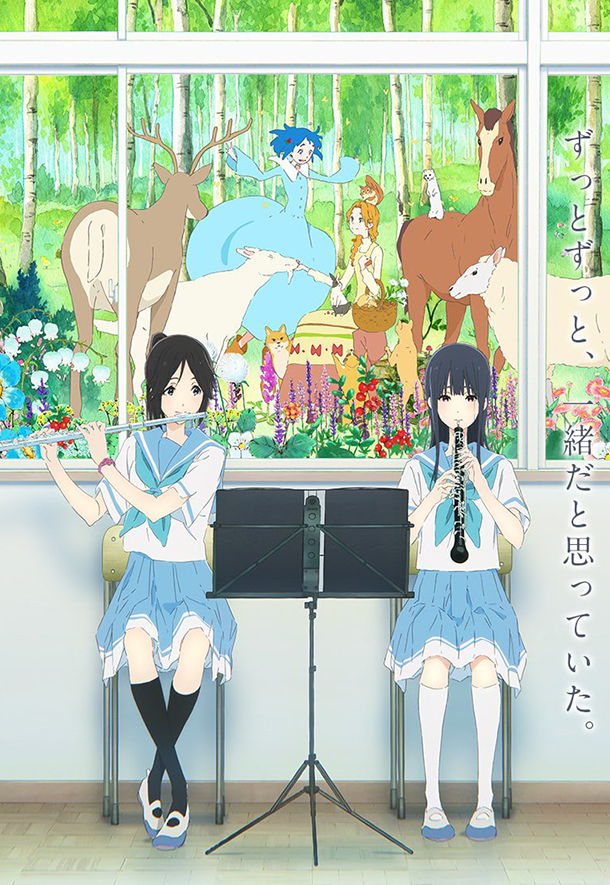This first day at the Annecy Festival 2018 starts well with Liz and the Blue Bird, Naoko Yamada's feature film out of competition to whom we owe the famous and moving A Silent Voice presented in competition last year. The young director once again explores teenage intrigue with a story of friendship and coming of age.
VO title: リズと青い鳥
Translated title: Hibike! Euphonium – Liz to Aoi Tori
Studios: Kyoto Animation
Writer: YOSHIDA Reiko Character Designer: NISHIYA Futoshi
Director: YAMADA Naoko
Composer : USHIO Kensuke
Type : Film
Genre : Slice-of-life, Comedy
Origin : Japan – 2017
Number of film(s) : 1
Cinema release : April 21, 2018

An original story …
Just like her previous films, Liz and the Blue Bird is adapted from a popular series in Japan Sound! Euphonium. But it is not the main characters of the series that are highlighted, but two final year students: Mizore Yoroizuka , who plays the oboe, and Nozomi Kasaki, the flute.
The two girls are very close to each other, but the relationship seems asymmetrical. All this changed when the school's music club decided to perform a score adapted from Maurice Maeterlinck's famous play L'oiseau Bleu, dating from 1908.
This fantastic story then mixes with the main plot like a mirror held up to the two young girls. They must then become aware of many things that have a direct impact on their future and their friendship.
… On the universal subject
Mizore and Nozomi are two very different personalities, one is totally introverted and emotionally dependent, while the other is outgoing and popular. Yet the two girls seem to be linked by a deep friendship. The end of high school is approaching and everyone has questions about their future, but what disturbs Mizore is the separation with Nozomi. With music as the main link, it is the friendship between the two girls that is explored. Emotional dependence, rejection, and jealousy are all human states that give psychological reliefs to the characters.
The frequent back and forth between real and imaginary, supported by orchestral music of great sweetness, make it possible to highlight the evolutions of the two protagonists until a final scene full of flights.
With a seemingly simple subject, Naoko Yamada once again manages to strike a chord with her audience with a bittersweet story.








































